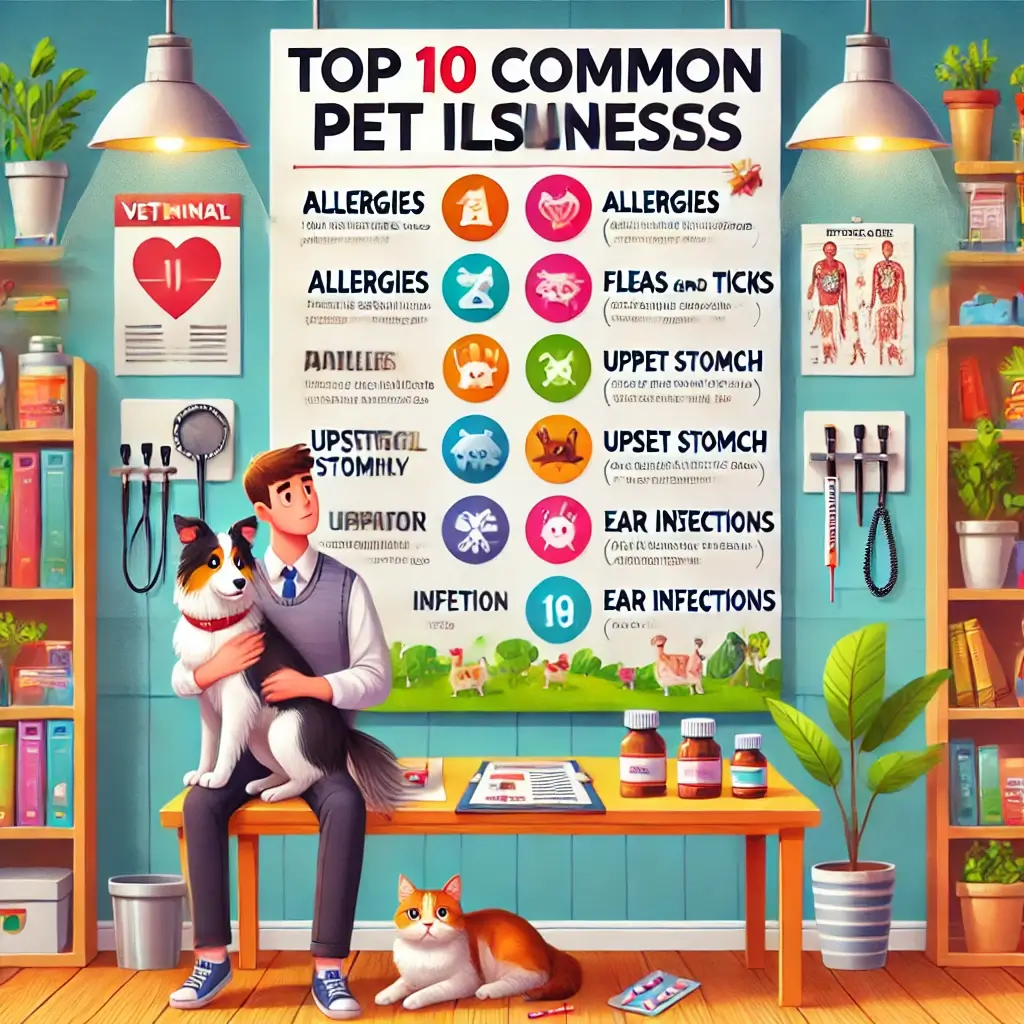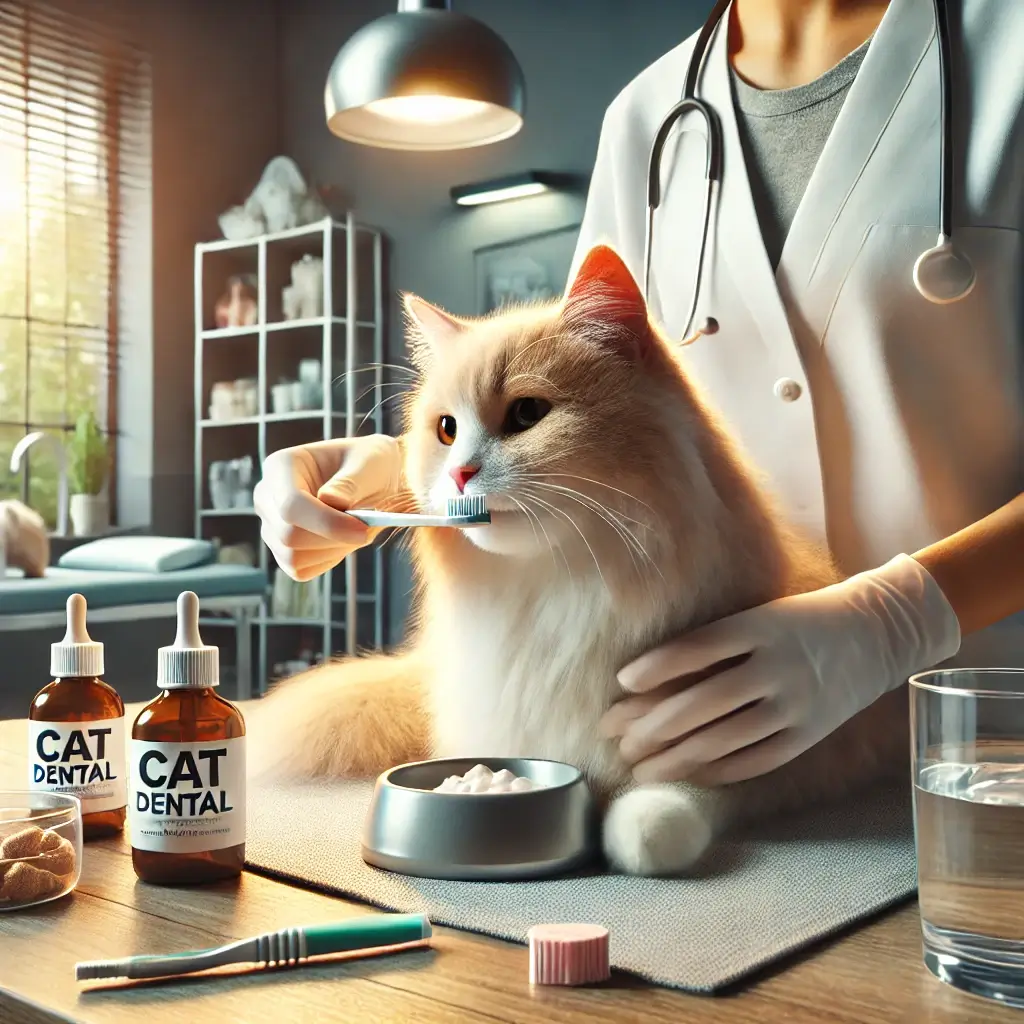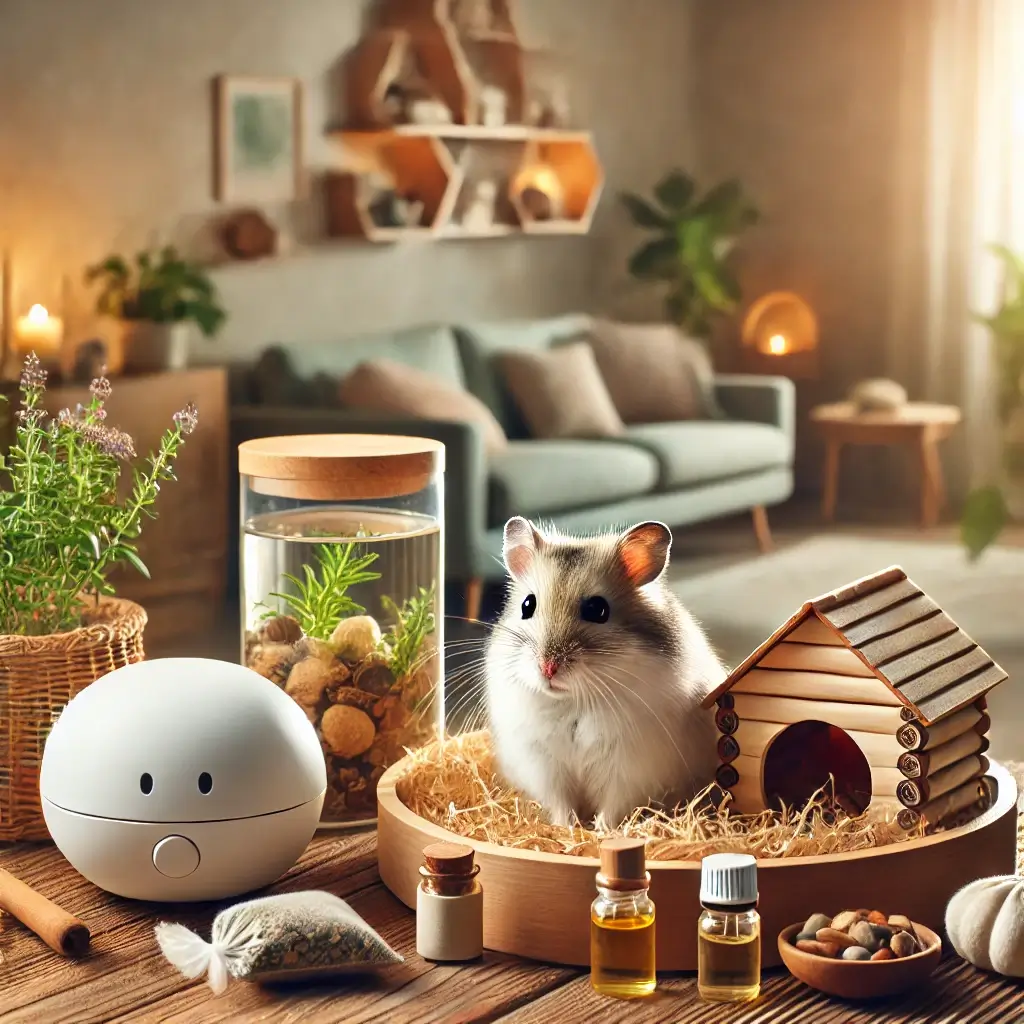Tips on Reducing Pet Anxiety, Anxiety in pets is a common issue that affects their quality of life and your household harmony.
Dogs and cats often show anxiety by pacing, whining, or hiding. Pet owners should understand these signals. It’s the first step to a calmer, more supportive environment. Pet anxiety can stem from various triggers. These include separation, unfamiliar places, or loud noises like thunderstorms.
You might ask questions like, “What can I do to reduce pet anxiety naturally?” or “Are there products like an anxiety-relieving pet bed that truly work?” The positive news is that many effective solutions are available.
Also Read
This guide offers tips to reduce pet anxiety. It covers natural remedies, professional treatments, and everyday strategies. These steps will help with separation anxiety in dogs and soothing pets at night. Together, let’s ensure your furry companion feels safe, happy, and loved.
Affiliate Links for Pet Calming Products:
Understanding Pet Anxiety

Pet anxiety is a behavioral issue that affects animals of all ages and breeds. Recognizing its causes and symptoms is crucial for implementing effective solutions. Like humans, pets get anxious from changes, new situations, or being away from their owners.
What is Pet Anxiety?
Pet anxiety refers to a state of fear or unease that disrupts a pet’s daily activities. It can manifest as destructive behavior, excessive barking, or withdrawal. Common triggers include:
- Separation Anxiety in Dogs: Being left alone for extended periods.
- Loud noises: fireworks, thunderstorms, or sudden sounds.
- Unfamiliar Situations: Moving to a new home or meeting new people.
Signs of Anxiety in Pets
Recognizing the symptoms of anxiety helps address the problem early. Look out for:
- Pacing, whining, or excessive barking.
- Hiding, trembling, or showing signs of fear.
- Destructive actions, such as chewing furniture.
- Changes in appetite or grooming habits.
If your pet shows these behaviors, it’s time to explore solutions, including natural remedies for dog anxiety and practical tips.
Why Does Pet Anxiety Happen?
Anxiety can be caused by:
- Genetics: Some breeds are predisposed to anxiety, such as Border Collies and German Shepherds.
- Past Trauma: Rescue pets often experience anxiety from previous neglect or abuse.
- Environment: A lack of socialization or a chaotic home can contribute to stress.
Natural Ways to Ease Pet Anxiety
Addressing anxiety doesn’t always require medication. Many pet owners opt for natural anxiety remedies for dogs, such as:
- Herbal supplements like chamomile or valerian root.
- CBD oil for calming nervous behaviors.
- Interactive toys or puzzles to provide mental stimulation.
Affiliate Link for Natural Remedies:
- Discover calming solutions for pets on Amazon.
Separation Anxiety in Dogs
One of the most common types of pet anxiety is separation anxiety. Dogs with this condition often display destructive behavior when left alone. Addressing this requires patience and strategies like:
- Creating a Safe Space: Set up a cozy area with toys and an anxiety-relieving pet bed.
- Gradual Training: Teach your dog to tolerate being alone in small increments.
Affiliate Link for Calming Products:
- Find anxiety-relieving beds at AppSumo.
External Resources
For extra guidance on pet anxiety, visit trusted sources like ASPCA.
Key Takeaway
Understanding pet anxiety is the first step. It will help create a calmer, happier life for your furry friend. You can greatly improve their well-being. Do this by recognizing triggers and using proven solutions.
Effective Strategies to Reduce Pet Anxiety

Pet anxiety can be tough for pets and their owners. But effective strategies can manage it. To reduce anxiety, we need to change behaviors and the environment. Sometimes, we also need professional help. These actionable tips will help your furry companion feel calmer and more secure.
1. Create a Safe Space
Providing a designated area where your pet feels secure is a great way to reduce anxiety. This could be a quiet room, a cozy corner, or a crate designed to offer comfort.
- Comfortable Environment: Add an anxiety-relieving pet bed and familiar toys to the space. This helps your pet associate the area with safety and relaxation.
- Minimize Stressors: Keep the space away from loud noises or high-traffic areas in your home.
Affiliate Link for Safe Space Essentials:
- Shop calming beds and toys at Amazon.
2. Maintain a Consistent Routine
Pets thrive on predictability. Regular schedules for meals, exercise, and bedtime can reduce anxiety by providing a sense of stability.
- Feeding Times: Feed your pet at the same time every day.
- Daily Activities: Incorporate consistent walks or playtime to burn excess energy and lower stress levels.
3. Use Positive Reinforcement
Reward-based training can reduce anxiety. It builds your pet’s confidence and encourages good behavior.
- Reward Calm Behavior: When your pet responds calmly to a stressful situation, reward them with treats or praise.
- Avoid Punishment: Scolding anxious behavior can make the problem worse. Instead, redirect their focus with commands and rewards.
Quick Tip: Use treats sparingly to avoid overfeeding while reinforcing good behavior.
4. Introduce Mental Stimulation
Mental exercises engage your pet’s mind. They divert it from anxiety triggers.
- Puzzle Toys: Use interactive toys that reward your pet with treats for solving puzzles.
- Scent Games: Hide treats around the house and encourage your pet to find them using their sense of smell.
Affiliate Link for Interactive Toys:
- Explore puzzle toys and games on AppSumo.
5. Engage in Regular Exercise
Physical activity is one of the most effective ways to manage anxiety in pets. Exercise helps release pent-up energy and promotes relaxation.
- Daily Walks: Take your dog on walks tailored to their energy levels.
- Play Sessions: Engage in interactive games like fetch or tug-of-war to strengthen your bond.
Quick Tip: For pets with separation anxiety, exercise them before you leave. It will help them relax while you’re gone.
6. Try Calming Products
Pheromone diffusers and anxiety wraps can calm pets in stressful situations.
- Pheromone Diffusers: These mimic natural calming signals that help pets feel at ease.
- Anxiety Wraps: Tight-fitting wraps apply gentle pressure, creating a calming effect.
Affiliate Link for Calming Products:
- Find pheromone diffusers and wraps on AliExpress.
7. Seek Professional Help
If anxiety persists despite your efforts, see a vet or animal behaviorist.
- Veterinary Guidance: A vet can identify underlying health issues contributing to anxiety.
- Behavioral Therapy: Professional training can address deep-seated fears and provide tailored solutions.
External Resources for More Tips
For additional resources on reducing pet anxiety, visit PetMD.
Key Takeaway
Reducing pet anxiety is a multi-step process that requires patience and persistence. Create a safe space, keep routines, and try calming products. This can help your pet live a happier, stress-free life. Combining these strategies with professional advice ensures the best outcomes.
Natural Remedies for Dog Anxiety

Many pet owners prefer a natural way to reduce pet anxiety. It’s gentle and effective. From diet changes to herbal supplements, these remedies help calm anxious pets. They contain no harsh chemicals. It’s key to know which natural options work best for your pet. This will help create a stress-free environment.
1. Herbal Supplements for Anxiety Relief
People know herbs like chamomile, valerian root, and passionflower for their calming effects. These supplements can help reduce nervous energy and promote relaxation.
| Herb | Benefit | Usage |
|---|---|---|
| Chamomile | Soothes nerves and aids sleep | Add to food or use as a tea (vet-approved). |
| Valerian Root | Reduces stress and agitation | Available as capsules or drops. |
| Passionflower | Eases hyperactivity | Use in small, vet-recommended doses. |
Affiliate Link for Herbal Solutions:
- Find herbal remedies on AppSumo.
2. CBD Oil for Pets
CBD oil is gaining popularity as a natural remedy for anxiety in dogs. It interacts with the endocannabinoids system to reduce stress and promote calmness.
- Dosage Guidelines: Always start with the lowest dose and adjust based on your pet’s size and response.
- Choosing Quality: Look for vet-approved, THC-free products to ensure safety.
Quick Tip: Consult your vet before introducing CBD to your pet’s routine.
3. Aromatherapy for Pets
Essential oils like lavender and chamomile can soothe anxious pets. Use these oils carefully, as some scents can be toxic to animals.
- Diffusers: Add a few drops of pet-safe oils to a diffuser in your pet’s relaxation area.
- Sprays: Use diluted sprays on bedding or in the air to create a calming atmosphere.
Affiliate Link for Calming Products:
- Explore calming sprays on Amazon.
4. Homemade Calming Aids
Creating your own anxiety aids can be an affordable and personalized option.
- DIY anxiety wraps: Wrap your pet snugly in a soft cloth to mimic the effects of commercial anxiety wraps.
- Homemade Treats: Bake treats with calming ingredients like oats and chamomile.
Homemade Treats: Bake treats with calming ingredients like oats and chamomile.
| DIY Recipe | Ingredients | Instructions |
|---|---|---|
| Calming Dog Treats | Oats, chamomile, honey | Mix, bake at 350°F, and serve in moderation. |
5. Mental Stimulation
Keeping your pet’s mind occupied can help distract them from anxiety triggers.
- Puzzle Toys: Fill interactive toys with treats to keep your pet engaged.
- Training Games: Teach your pet new commands or tricks to build confidence.
Affiliate Link for Interactive Toys:
- Find puzzle toys on AppSumo.
6. Calming Music and Sounds
Soft music or white noise can mask anxiety-inducing sounds like fireworks or thunderstorms.
- Pet-Specific Playlists: Many streaming services offer music designed to calm pets.
- White Noise Machines: Use these devices to create a consistent and soothing environment.
7. Diet and Nutrition Adjustments
A balanced diet can help regulate your pet’s mood and energy levels. Consider adding these anxiety-reducing ingredients to their meals:
- Omega-3 fatty acids for brain health and mood stability.
- Probiotics to reduce gut-related stress.
- Anti-inflammatory foods like sweet potatoes and spinach.
Affiliate Link for Healthy Pet Foods:
- Browse anti-anxiety pet diets on AliExpress.
Key Takeaway
Natural remedies offer safe and effective solutions for managing your pet’s anxiety. These methods, from herbal supplements to homemade treats, prioritize your pet’s health and comfort. Always consult your vet to choose the best options for your pet.
Natural Remedies for Cat Anxiety

Cats are sensitive. Anxiety can disrupt their routines and well-being. Natural remedies often help with cat anxiety. They work well and are gentle. In severe cases, professional treatment may be necessary. Here are some remedies that can help your feline friend feel calmer and more secure.
1. Herbal Supplements for Cats
Certain herbs have calming properties that can ease anxiety in cats. Always consult your veterinarian before introducing supplements to your cat’s diet.
| Herb | Benefit | Usage |
|---|---|---|
| Chamomile | Relieves stress and soothes nerves | Add small, vet-approved doses to their food. |
| Valerian Root | Reduces hyperactivity and anxiety | Available as capsules or liquid drops. |
| Catnip | Promotes relaxation in small doses | Use sparingly to avoid overstimulation. |
Affiliate Link for Herbal Supplements:
- Shop natural calming solutions for cats on AppSumo.
2. Aromatherapy for Cats
Aromatherapy can be a safe and effective method to help your cat relax. Use essential oils carefully, as some are toxic to cats.
- Pet-Safe Essential Oils: Lavender and chamomile are commonly used to calm cats.
- Diffusers: Use a pet-safe diffuser to disperse calming scents throughout your home.
- Sprays: Lightly mist bedding or your cat’s favorite spots with diluted essential oils.
Affiliate Link for Aromatherapy Products:
- Find pet-safe diffusers and sprays on Amazon.
3. Calming Pheromones
Synthetic pheromone products mimic natural cat pheromones, helping cats feel safe and secure.
| Product Type | Usage | Effectiveness |
|---|---|---|
| Plug-In Diffusers | Ideal for long-term calming effects | Reduces stress in multi-cat households. |
| Pheromone Collars | Great for on-the-go comfort | Effective during travel or vet visits. |
Affiliate Link for Pheromone Products:
- Explore pheromone diffusers and collars on AliExpress.
4. Calming Cat Treats
Treats formulated with calming ingredients can help reduce anxiety while rewarding good behavior.
- Key Ingredients: Look for treats with L-theanine, melatonin, or chamomile.
- Usage Tip: Use these treats sparingly to avoid overfeeding.
Affiliate Link for Calming Treats:
- Discover vet-approved calming treats on AppSumo.
5. Interactive Toys and Mental Stimulation
Keeping your cat mentally engaged can help distract it from anxiety triggers.
- Puzzle Toys: Fill interactive toys with their favorite treats to encourage focus.
- Feather Wands and Lasers: Engage your cat in playful activities to release nervous energy.
Affiliate Link for Toys:
- Check out engaging cat toys on Amazon.
6. Creating a Calming Environment
A safe and soothing environment is essential for reducing anxiety in cats.
- Cozy Spaces: Create hideaways with soft bedding and calming products, like diffusers.
- Minimize Stressors: Keep loud noises and sudden movements to a minimum.
| Stressors | Impact | Solution |
|---|---|---|
| Loud Noises | Triggers fear and anxiety | Use white noise machines to mask sounds. |
| Unfamiliar Visitors | Causes territorial stress | Provide a safe, quiet room during visits. |
7. Music Therapy for Cats
Research suggests that music can have a calming effect on cats.
- Cat-Specific Playlists: Many streaming platforms offer playlists designed to reduce pet stress.
- White Noise Machines: Use them to mask external sounds that may trigger anxiety.
Affiliate Link for Music and White Noise Machines:
- Explore calming sound devices on AliExpress.
Key Takeaway
Natural remedies for cat anxiety offer a holistic way to calm your cat. Use herbal supplements, pheromones, and interactive toys. They can create a safe, comforting environment. Always consult a vet before using new remedies. They must be safe and effective for your cat.
Natural Remedies for Bird Anxiety

Birds are very perceptive. Anxiety can cause feather plucking, aggression, or excessive vocalizations. For severe cases, professional care is essential. But many natural remedies can help. They can reduce anxiety and create a calm, happy environment for your bird.
1. Herbal Solutions for Birds
Herbal remedies can calm birds. But, use them in safe, bird-specific doses. Always consult an avian vet before adding herbs to your bird’s diet.
| Herb | Benefit | Usage |
|---|---|---|
| Chamomile | Reduces stress and aids digestion | Brew into tea and cool before offering. |
| Lavender | Promotes relaxation and reduces fear | Place fresh sprigs near the bird’s cage. |
| Passionflower | Eases hyperactivity | Use as a vet-approved liquid supplement. |
Affiliate Link for Herbal Remedies:
- Find safe herbal solutions for birds on AppSumo.
2. Calming Music and Sounds
Birds are sensitive to sound. So, music and white noise can reduce their anxiety.
- Nature Sounds: Play recordings of gentle rain or forest noises to mimic their natural habitat.
- Soft Music: Classical or slow-tempo tunes can help birds feel at ease.
- White Noise Machines: Mask loud or startling noises with consistent background sound.
Affiliate Link for Calming Devices:
- Explore white noise machines on AliExpress.
3. Toys and Mental Stimulation
Providing toys and opportunities for mental engagement can distract birds from anxiety triggers.
- Foraging Toys: Encourage natural behaviors by hiding treats in foraging toys.
- Mirrors and Bells: Interactive toys like mirrors and bells can provide entertainment.
- Rotating Toys: Change the toys regularly to maintain interest.
| Toy Type | Purpose | Example |
|---|---|---|
| Foraging Toys | Encourages mental engagement | Fill with small seeds or dried fruit. |
| Swings | Provides exercise and relaxation | Hang securely in the cage. |
| Puzzles | Stimulates problem-solving skills | Use safe, bird-specific materials. |
Affiliate Link for Bird Toys:
- Check out interactive toys for birds on Amazon.
4. Aromatherapy for Birds
Use extreme caution with essential oils around birds. Some natural scents can calm birds if used indirectly.
- Pet-Safe Scents: Lavender and chamomile are generally safe in minimal amounts.
- Diffusers: Place diffusers far from the cage to avoid direct exposure.
- Fresh Herbs: Add fresh herbs like mint or rosemary near the cage for a subtle calming effect.
Affiliate Link for Aromatherapy Products:
- Find pet-safe diffusers and accessories on AppSumo.
5. Creating a Stress-Free Environment
Your bird’s environment plays a critical role in managing anxiety. Simple adjustments can make a big difference.
- Reduce Noise and Movement: Place the cage in a quiet, low-traffic area.
- Lighting Control: Use soft lighting or cover the cage at night to promote rest.
- Temperature Stability: Ensure the cage is in a stable, draft-free area.
| Environment Factor | Impact | Solution |
|---|---|---|
| Noise Levels | High noise causes fear and anxiety | Use white noise machines or soundproofing. |
| Lighting | Bright lights can overstimulate | Add soft covers or dimmer lights. |
| Cage Location | Frequent movement stresses birds | Keep the cage in a stable, familiar spot. |
6. Natural Diet Adjustments
Diet can influence a bird’s mood and stress levels. Adding certain natural foods to their diet can help regulate anxiety.
- Fruits and Vegetables: Blueberries, spinach, and carrots provide antioxidants and nutrients.
- Seeds and Nuts: Small amounts of sunflower seeds or almonds can promote relaxation.
- Avoid Overfeeding: Stick to recommended portions to maintain a healthy weight.
Affiliate Link for Healthy Bird Foods: Tips on Reducing Pet Anxiety.
- Browse bird-friendly food options on AliExpress.
Key Takeaway
To reduce anxiety in birds, take a holistic approach. Adjust the environment, provide mental stimulation, and use natural remedies. These strategies can greatly enhance your bird’s happiness and well-being. Always consult an avian vet for advice. It ensures the safety and effectiveness of these remedies.
Natural Remedies for Rodent Anxiety

Rodents like hamsters, guinea pigs, and mice can get anxious. Changes in their environment, loud noises, or improper handling can cause it. These small pets may not always vocalize their stress.
But, changes like hiding, bar-chewing, or reduced activity often signal anxiety. Natural remedies are a gentle, effective way to calm your rodent and improve its health.
1. Provide a Comfortable Habitat
Creating a stress-free habitat is one of the most effective ways to reduce anxiety in rodents. The environment should mimic their natural habitat as closely as possible.
- Hiding Spots: Add tunnels, caves, or shelters to help your pet feel secure.
- Proper Bedding: Use soft, dust-free bedding to promote comfort and avoid respiratory issues.
- Temperature Control: Maintain a stable room temperature and keep the cage away from drafts.
| Habitat Feature | Benefit | Recommendation |
|---|---|---|
| Hiding Spots | Reduces stress by offering security | Try hideouts from Amazon. |
| Dust-Free Bedding | Prevents respiratory irritation | Use natural materials like paper-based bedding. |
| Stable Temperature | Keeps rodents calm and healthy | Place the cage in a draft-free area. |
2. Introduce Natural Chew Toys
Chewing is a natural behavior that can reduce anxiety in rodents. Safe, natural chew toys keep their minds occupied and their teeth healthy.
- Wooden Toys: Choose untreated, pesticide-free wood such as applewood.
- Mineral Chews: Offer chew blocks enriched with minerals to promote relaxation.
- DIY Chews: Create homemade toys using cardboard or paper towel rolls.
Affiliate Link for Chew Toys:
- Explore chew toys on AppSumo.
3. Use Calming Scents
Rodents have a keen sense of smell, and calming scents can help ease their anxiety. Always use scents in moderation to ensure your pet’s safety.
- Herbal Sachets: Place small pouches of dried lavender or chamomile near the cage.
- Fresh Herbs: Add mint or basil leaves to the habitat for a soothing aroma.
- Avoid Synthetic Fragrances: Use only natural, rodent-safe scents to prevent irritation.
Affiliate Link for Aromatherapy Products: Tips on Reducing Pet Anxiety.
- Discover safe aromatherapy options for rodents on Amazon.
4. Engage in Gentle Handling
Proper handling builds trust and reduces stress in rodents. Always approach your pet with patience and care.
- Gradual Interaction: Start by offering treats from your hand to build trust.
- Use Both Hands: Support their body fully while lifting to make them feel secure.
- Avoid Loud Noises: Speak softly and avoid sudden movements during handling.
5. Mental Stimulation and Toys
Rodents thrive on mental stimulation, which can distract them from stressors and reduce anxiety.
- Activity Wheels: Ensure wheels are appropriately sized and safe for their species.
- Foraging Toys: Hide treats in shreddable toys to encourage natural foraging behavior.
- Maze Play: Set up a small maze using cardboard to provide enrichment.
| Toy Type | Purpose | Example |
|---|---|---|
| Foraging Toys | Promotes natural behaviors | Try treat-dispensing toys from AppSumo. |
| Activity Wheels | Provides exercise and distraction | Use solid-surface wheels to prevent injury. |
| Maze Play | Boosts mental stimulation | Create DIY mazes with household materials. |
6. Adjust Their Diet
Diet plays a key role in managing a rodent’s mood and stress levels. Adding nutrient-rich foods can promote relaxation.
- Fresh Vegetables: Offer spinach, carrots, and cucumbers for hydration and nutrients.
- Nuts and Seeds: Provide small amounts of sunflower seeds or almonds for a calming effect.
- Avoid Sugary Treats: Stick to healthy options to prevent hyperactivity.
Affiliate Link for Rodent Food:
- Browse healthy rodent food options on AliExpress.
7. Calming Sounds and Music
Rodents are sensitive to sound, so a calm auditory environment can make a significant difference.
- White Noise Machines: Mask external sounds with soft, consistent noise.
- Nature Sounds: Play gentle rain or forest sounds near the habitat to reduce stress.
Affiliate Link for White Noise Machines: Tips on Reducing Pet Anxiety.
- Check out calming sound devices for rodents on Amazon.
Key Takeaway
Natural remedies offer a holistic approach to managing rodent anxiety.
You can greatly improve your pet’s life by:
- Creating a secure environment.
- Providing mental stimulation.
- Using calming scents.
Always consult a vet before using new remedies. They must be safe and effective for your rodent.
Natural Remedies for Reptile Anxiety

Reptiles, like lizards, snakes, and turtles, may not show anxiety as much as mammals. But, they do get stressed by changes in their environment, improper handling, or poor care.
Signs of reptile anxiety include excessive hiding, refusal to eat, or erratic behaviors. By understanding their needs and applying natural remedies, you can ensure their well-being.
1. Creating a Proper Habitat
A reptile’s environment is critical for reducing stress and anxiety. Mimicking their natural habitat provides comfort and promotes healthy behavior.
- Temperature and Humidity Control: Use thermometers and hygrometers to maintain optimal levels based on your reptile’s species.
- Hiding Spots: Include caves or plants to give your reptile a place to feel secure.
- Substrate Choice: Use natural, species-appropriate substrate to reduce stress and support healthy behavior.
| Habitat Element | Purpose | Recommendation |
|---|---|---|
| Hiding Spots | Offers a sense of security | Try reptile caves from Amazon. |
| Temperature Regulation | Prevents overheating or cold stress | Use thermostats and heat lamps. |
| Humidity Maintenance | Promotes health and reduces stress | Try misting systems or hygrometers. |
2. Introduce Calming Scents
Reptiles rely less on scent than mammals. But certain natural aromas can calm them when applied with care.
- Herbal Sprays: Mist diluted chamomile or lavender near the enclosure, avoiding direct contact.
- Fresh Plants: Add safe, non-toxic plants like pothos to the habitat to improve air quality and create a natural feel.
- Avoid Overpowering Scents: Use scents sparingly, as reptiles have sensitive systems.
Affiliate Link for Calming Scents: Tips on Reducing Pet Anxiety.
- Explore reptile-safe sprays and accessories on AliExpress.
3. Adjust Handling Techniques
Proper handling is essential for building trust and reducing anxiety in reptiles. Mishandling can lead to stress or defensive behaviors.
- Start Slowly: Begin by placing your hand in the enclosure without touching the reptile, allowing them to acclimate.
- Support Their Body: When lifting, fully support their body to make them feel secure.
- Limit Handling: Avoid excessive handling, especially during molting or shedding periods.
Quick Tip: Always wash your hands before and after handling reptiles to prevent cross-contamination and stress.
4. Enrichment and Stimulation
Enrichment activities help reptiles stay engaged and can reduce stress caused by boredom or lack of stimulation.
- Climbing Structures: Use branches or rocks to encourage natural climbing behavior.
- Foraging Opportunities: Hide food or treats in the enclosure to promote hunting instincts.
- Interactive Toys: Include items like small balls for turtles to push or move.
| Enrichment Type | Purpose | Example |
|---|---|---|
| Climbing Structures | Encourages natural behaviors | Try driftwood or cork bark. |
| Foraging Opportunities | Reduces boredom | Use feeding bowls with hidden treats. |
| Interactive Toys | Keeps reptiles engaged | Explore turtle balls from AppSumo. |
5. Diet and Nutrition Adjustments
A proper diet supports your reptile’s physical and emotional health. Ensure their meals mimic their natural diet as closely as possible.
- Live Prey: For species that eat insects or small animals, offer live prey in moderation.
- Calcium and Vitamin Supplements: Dust food with calcium powder to prevent deficiencies that can cause stress.
- Hydration: Provide clean, fresh water daily, and mist as needed for species requiring higher humidity.
Affiliate Link for Reptile Food:
- Shop species-specific food and supplements on Amazon.
6. Reducing Environmental Stressors
External factors like loud noises or bright lights can contribute to reptile anxiety. Creating a peaceful setting helps minimize stress.
- Reduce Noise: Place the enclosure in a quiet, low-traffic area of your home.
- Lighting Adjustments: Use UVB lights with timers to mimic natural day-night cycles.
- Stability: Avoid moving the enclosure frequently, as this can disrupt their sense of security.
Affiliate Link for Reptile Lighting Systems: Tips on Reducing Pet Anxiety.
- Explore UVB lights and timers on AliExpress.
7. Observation and Routine
Regular observation of your reptile’s behavior can help identify and address anxiety triggers.
- Daily Monitoring: Watch for signs like excessive hiding, changes in appetite, or unusual behaviors.
- Routine Maintenance: Clean the enclosure regularly to prevent stress caused by poor hygiene.
- Consult a Vet: If anxiety symptoms persist, seek advice from a reptile-savvy veterinarian.
Key Takeaway
To reduce reptile anxiety, we must meet their needs. We must provide an environment that mimics their natural habitat. These natural remedies can help your reptile feel safe and thrive. They include proper handling, enriching activities, and dietary care. Always consult a vet to ensure new remedies are safe and effective.
Natural Remedies for Fish Anxiety

Fish don’t show emotions like mammals. But, they can feel anxiety and stress from changes in their environment, tankmates, or care. Anxious fish may swim erratically, hide, or lose their appetite. They may also show unusual behavior. With care and natural remedies, you can calm your fish. It will help them thrive.
1. Maintain Optimal Water Conditions
Water quality is the most critical factor in reducing fish anxiety. Poor conditions can stress fish and make them vulnerable to illness.
- Temperature Control: Ensure the tank temperature suits the species. Use a reliable heater and thermometer for accuracy.
- Ammonia and Nitrite Levels: Keep these levels at zero through regular testing and filtration.
- pH Balance: Maintain stable pH levels to prevent stress caused by rapid fluctuations.
| Parameter | Ideal Range | Tools Needed |
|---|---|---|
| Temperature | Species-specific (e.g., 75-80°F for tropical fish) | Heater and thermometer. |
| Ammonia and Nitrite | 0 ppm | Water testing kits. |
| pH Levels | Species-specific (e.g., 6.5-7.5) | pH testing strips. |
Affiliate Link for Water Testing Kits: Tips on Reducing Pet Anxiety.
- Find reliable kits on Amazon.
2. Create a Comfortable Tank Environment
A well-designed tank can significantly reduce anxiety by mimicking a fish’s natural habitat.
- Hiding Spaces: Add rocks, plants, and caves to give fish places to retreat when stressed.
- Low-Stress Lighting: Use soft or dimmable lights to avoid overstimulation.
- Tank Mates: Choose compatible tankmates to prevent bullying and territorial stress.
| Tank Feature | Benefit | Recommendation |
|---|---|---|
| Rocks and Caves | Provides safe hiding spots | Explore decorative caves on AliExpress. |
| Live Plants | Mimics natural environment | Choose low-maintenance plants like java moss. |
| Soft Lighting | Reduces overstimulation | Use dimmable LED aquarium lights. |
3. Minimize External Stressors
External factors like noise, movement, and sudden changes can cause anxiety in fish.
- Quiet Environment: Place the tank in a low-traffic, quiet area.
- Avoid Sudden Movements: Approach the tank gently to avoid startling the fish.
- Cover the Tank: Use a background or partial cover to reduce external visual disturbances.
4. Provide a Balanced Diet
A proper diet not only keeps fish healthy but also reduces stress caused by nutritional deficiencies.
- Species-Specific Foods: Offer food tailored to the species, such as pellets for goldfish or algae wafers for bottom feeders.
- Treats: Occasionally feed high-protein snacks like bloodworms or brine shrimp to keep them engaged.
- Avoid Overfeeding: Overfeeding can cause water quality issues and lead to stress.
Affiliate Link for Fish Food:
- Shop high-quality fish food on AppSumo.
5. Enrichment and Stimulation
Keeping fish mentally stimulated can help reduce stress and prevent boredom.
- Aquarium Decorations: Add elements like floating plants or moving decorations to create interest.
- Interactive Feeding: Use feeding rings or slow-release feeders for a more engaging experience.
- Tank Layout Changes: Rearrange decorations occasionally to mimic the challenges of a new environment.
6. Use Calming Additives
Certain natural additives can help reduce anxiety and mimic a fish’s natural habitat.
- Indian Almond Leaves: Release tannins into the water, creating a natural calming effect.
- Aquarium Salt: Use in small, species-appropriate doses to reduce stress and promote healing.
- Chamomile Tea: Add a small amount of cooled, diluted chamomile tea to the tank (consult a vet first).
Affiliate Link for Additives: Tips on Reducing Pet Anxiety.
- Explore calming additives for aquariums on Amazon.
7. Observe Behavior Regularly
Regular monitoring helps you identify and address signs of anxiety early.
- Behavior Tracking: Watch for changes in swimming patterns, appetite, or interactions with tankmates.
- Weekly Maintenance: Perform water changes and tank cleanings to maintain a healthy environment.
- Consult Experts: Reach out to aquatic vets or experienced hobbyists for advice.
Key Takeaway
To reduce fish anxiety, combine good tank care, a balanced diet, and natural additives. Keep a stress-free environment and watch your fish. This will ensure their long-term health and happiness. Always research the specific needs of your fish species to tailor solutions effectively.
Products to Alleviate Pet Anxiety

Modern pet care includes a wide range of products designed to reduce anxiety in pets. These items can provide quick relief. They can help with long-term strategies, like training and natural remedies. Choosing the right products for your pet can have a significant impact on their mood.
1. Anxiety-Relieving Pet Beds
Calming beds are among the most popular products for alleviating pet anxiety. These beds provide comfort and a sense of security.
Calming beds are among the most popular products for alleviating pet anxiety. These beds provide comfort and a sense of security.
| Feature | Benefit | Recommendation |
|---|---|---|
| Raised Rim Design | Supports the neck and head | Try calming beds on Amazon. |
| Plush Material | Mimics the feeling of a soft embrace | Provides warmth and a calming effect. |
| Anti-Slip Base | Stays in place to reduce movement | Perfect for tiled or hardwood floors. |
2. Calming Collars
Calming collars release pheromones that mimic the natural scent emitted by a mother dog or cat, providing reassurance.
- Key Benefits:
- Reduces stress during thunderstorms or travel.
- Effective for both dogs and cats.
- Usage Tips: Replace collars every 30 days for most effectiveness.
Affiliate Link for Calling Collars: Tips on Reducing Pet Anxiety.
- Explore options on AppSumo.
3. Pheromone Diffusers
Pheromone diffusers are plug-in devices that create a calming environment for pets. They are especially useful for reducing anxiety in multi-pet households.
| Type | Usage Scenario | Effectiveness |
|---|---|---|
| Plug-In Diffuser | Ideal for large rooms | Creates a soothing atmosphere for hours. |
| Spray Form | Suitable for travel or crates | Offers quick relief in small spaces. |
Affiliate Link for Pheromone Products:
- Browse phone diffusers on AliExpress.
4. Interactive Toys
Interactive toys help distract pets from anxiety triggers while providing mental stimulation.
- Popular Choices: Puzzle feeders, treat-dispensing toys, and snuffle mats.
- Quick Tip: Rotate toys weekly to keep your pet engaged.
Affiliate Link for Puzzle Toys: Tips on Reducing Pet Anxiety.
- Discover interactive pet toys on AppSumo.
5. Anxiety Wraps and Jackets
Anxiety wraps apply gentle pressure to your pet’s body, mimicking a comforting hug. These are ideal for pets scared of loud noises or traveling.
- Best Uses: thunderstorms, fireworks, or vet visits.
- Tip: Ensure a snug fit without restricting movement.
Affiliate Link for Wraps: Tips on Reducing Pet Anxiety.
- Find wraps and jackets on Amazon.
6. Calming Supplements
Supplements with melatonin, L-theanine, and chamomile can reduce anxiety. They are a safe, non-prescription option.
SupplementBenefitRecommendationMelatonin promotes relaxation and better sleep Available in chewable forms for pets.L-TheanineReduces anxiety without sedationGreat for high-energy pets.ChamomileProvides mild sedation and relaxationSafe for long-term use with vet approval.
Affiliate Link for Supplements: Tips on Reducing Pet Anxiety.
- Shop supplements on AliExpress.
7. Pet Cameras with Two-Way Communication
Pet cameras let you watch and interact with your pet remotely. This helps reduce their separation anxiety.
- Key Features:
- Two-way audio for real-time communication.
- Treat dispensers for rewarding good behavior.
Affiliate Link for Pet Cameras:
- Check out pet cameras on Amazon.
Key Takeaway
Anxiety-relieving products offer practical solutions for managing pet anxiety effectively. From cozy beds to toys and calming supplements, these tools help pets and their owners. Pair these products with behavioral strategies and natural remedies for the best results.
FAQs on Tips on Reducing Pet Anxiety
Addressing pet anxiety can be hard. But answering common questions can help pet owners. This FAQ section addresses common concerns. It offers advice and resources.
1. What are the most common symptoms of pet anxiety?
Pets may show anxiety through behaviors like excessive barking, pacing, or hiding. Physical signs include trembling, panting, or even destructive actions like chewing furniture. Recognizing these symptoms early helps in implementing effective solutions.
2. How can I calm my pet during fireworks or thunderstorms?
Loud noises like fireworks can trigger anxiety in pets. Strategies include creating a quiet space with an anxiety-relieving pet bed. Also, use calming products like pheromone sprays. Playing soothing music or white noise can also help mask the loud sounds.
Affiliate Link for Calming Products:
- Find anxiety-relief sprays and beds on Amazon.
3. Are there natural remedies for dog anxiety?
Yes, natural remedies include herbal supplements like chamomile and valerian root, as well as CBD oil. These options provide a gentle way to reduce anxiety without medication. Always consult your vet before introducing new remedies.
| Remedy | Benefit | Usage |
|---|---|---|
| Chamomile | Soothes nerves | Add to food or use as tea (vet-approved). |
| CBD Oil | Reduces stress and promotes calmness | Use in low doses as per vet’s recommendation. |
| Valerian Root | Reduces hyperactivity | Available in capsules or liquid drops. |
Affiliate Link for Supplements: Tips on Reducing Pet Anxiety.
Explore natural anxiety supplements on AppSumo.
4. Does pet insurance cover anxiety medication?
Some pet insurance plans cover therapies and medications for anxiety. Review your policy or consult your provider to find details on what is included.
Quick Tip: Look for insurance plans that offer wellness and behavioral health coverage.
5. Do pet cameras help with separation anxiety?
Yes, pet cameras with two-way audio and treat dispensers can help. They let you interact with your pet while you’re away. These devices provide comfort and reassurance to pets who struggle with being alone.
Affiliate Link for Pet Cameras: Tips on Reducing Pet Anxiety.
- Check out interactive pet cameras on AliExpress.
6. How can I prevent pet anxiety during travel?
Traveling with pets can be stressful for them. To ease their anxiety:
- Use a comfortable, well-ventilated carrier.
- Bring familiar items like their favorite toy or blanket.
- Consider calming collars or supplements for long trips.
Affiliate Link for Travel Products: Tips on Reducing Pet Anxiety.
- Browse travel-friendly pet products on Amazon.
7. Are there specific products for nighttime pet anxiety?
If your pet is anxious at night, try calming beds, pheromone diffusers, or soothing treats. Maintaining a consistent bedtime routine also helps.
Affiliate Link for Nighttime Solutions: Tips on Reducing Pet Anxiety.
- Find nighttime calming products on AppSumo.
Key Takeaway
FAQs provide quick, actionable insights into reducing pet anxiety. Use natural remedies and interactive tools to meet your pet’s needs. This will create a stress-free environment for them.
Conclusion: Tips on Reducing Pet Anxiety
Reducing pet anxiety takes time. It needs understanding, patience, and the right methods. You can improve your pet’s life by: 1. recognizing anxiety signs; 2. addressing triggers; and 3. using good solutions. A cozy, anxiety-relieving pet bed, entertaining toys, and natural remedies help. Every small effort boosts their well-being.
Key Takeaways
- Consistency is Key: Regular routines and safe spaces help pets feel secure.
- Natural Remedies Work: Herbal supplements, CBD oil, and calming products offer non-invasive solutions.
- Interactive Tools Help: Toys, pheromone diffusers, and pet cameras provide relief and keep pets engaged.
These strategies can help pet owners with dogs’ separation anxiety and nighttime stress. Also, vets can ensure your approach meets your pet’s needs.
Affiliate Recommendations for Pet Anxiety Relief
- Explore calming beds and diffusers at Amazon.
- Check out interactive toys and anxiety wraps on AppSumo.
- Discover natural supplements and sprays on AliExpress.
Visually Appealing Elements
Insert a graph of the top-rated pet anxiety solutions based on user reviews. Include: natural remedies, calming products, and professional interventions.

Pingback: Understanding Pet Allergies: Comprehensive Guide to Causes, Symptoms, and Solutions - Pawspera
Pingback: Why Vaccinations for Pets? Are Essential for Their Health of 2024
We rolled about us will assist At the